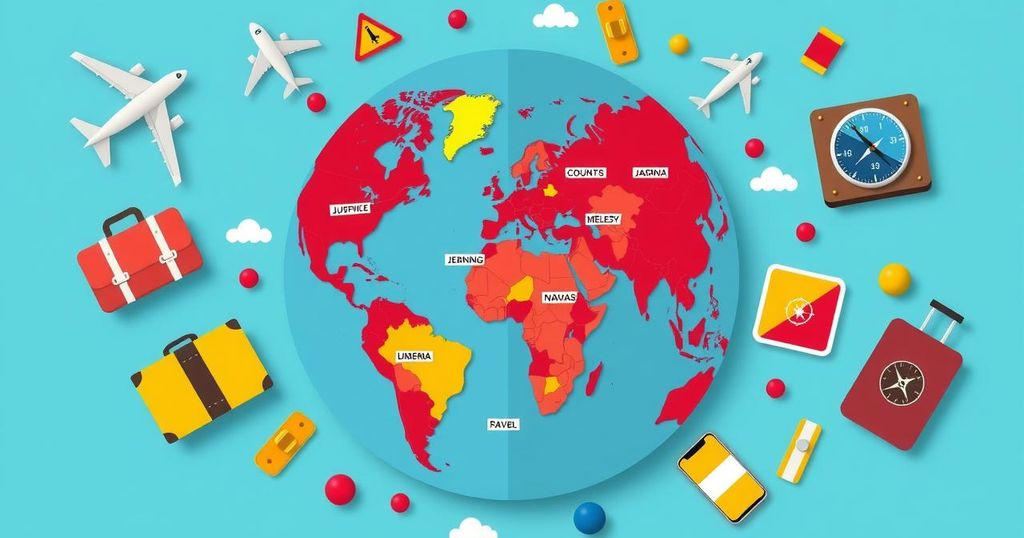Australia’s ‘Do Not Travel’ Warnings Impact on Global Tourism

Australia has issued ‘Do Not Travel’ warnings for ten nations—Russia, North Korea, Venezuela, Haiti, Iran, Myanmar, Sudan, Syria, Ukraine, and Libya—due to serious threats ranging from armed conflict to terrorism. The implications for the tourism sector include a complete suspension of activities, stunted economic recovery, and heightened safety risks, showcasing how geopolitical crises impact global travel dynamics.
The Australian Government has issued “Do Not Travel” warnings for ten countries—Russia, North Korea, Venezuela, Haiti, Iran, Myanmar, Sudan, Syria, Ukraine, and Libya—due to significant threats including armed conflict, terrorism, civil unrest, and arbitrary detention. These warnings, enumerated by the Department of Foreign Affairs and Trade (DFAT) on Smartraveller, not only signal safety concerns for travelers but also represent a severe hindrance to tourism recovery in these regions.
Travelers are particularly urged to leave Russia, where arbitrary detention risks and hostility towards foreigners are increasing. The presence of international tourists has collapsed, invoking scrutiny and danger. In North Korea, the closure of borders and suspended tours have resulted in a virtual absence of tourism, with no expected return of foreign travelers in the foreseeable future.
Venezuela remains plagued by instability characterized by violent crime and significant shortages of essential goods, making travel impractical. Similarly, Haiti is under a State of Emergency, marked by rampant gang violence that has led to the suspension of airline flights and closures of borders with the Dominican Republic, effectively freezing tourism activity.
Iran has become too hazardous for travel due to potential military strikes and civil unrest. The tourism sector, once poised for growth, is now deemed unsafe. Myanmar is also in turmoil post-2021 military coup, leading to a dramatic decline in tourism as the situation remains volatile.
In Sudan, continuous violence poses immediate risks, urging Australians to depart urgently amidst inadequate travel options. Syria’s conditions are dire, with high civilian casualties and active terrorist groups, making tourist activities almost non-existent. Ukraine’s ongoing war has rendered it a high-risk zone as heavy fighting and civil unrest have halted tourism altogether.
In Libya, similar issues arise, where the threat of violence and limited consular assistance signal a shutdown of tourism despite the country’s cultural significance and coastal attractions. This comprehensive travel advisory illustrates a prevailing global trend where geopolitical instability is reshaping tourism dynamics, urging travelers and providers to reconsider not just destinations but also the safety frameworks that accompany them.
Australia’s issuance of ‘Do Not Travel’ warnings for ten countries illustrates the vulnerable state of the global tourism sector amidst rising geopolitical unrest. As travel activity ceases in these regions, the implications for safety, economic recovery, and tourism infrastructure become pronounced. This advisory highlights a significant shift in international travel patterns, compelling stakeholders to navigate growing risks and deteriorating conditions carefully.
Original Source: www.travelandtourworld.com






